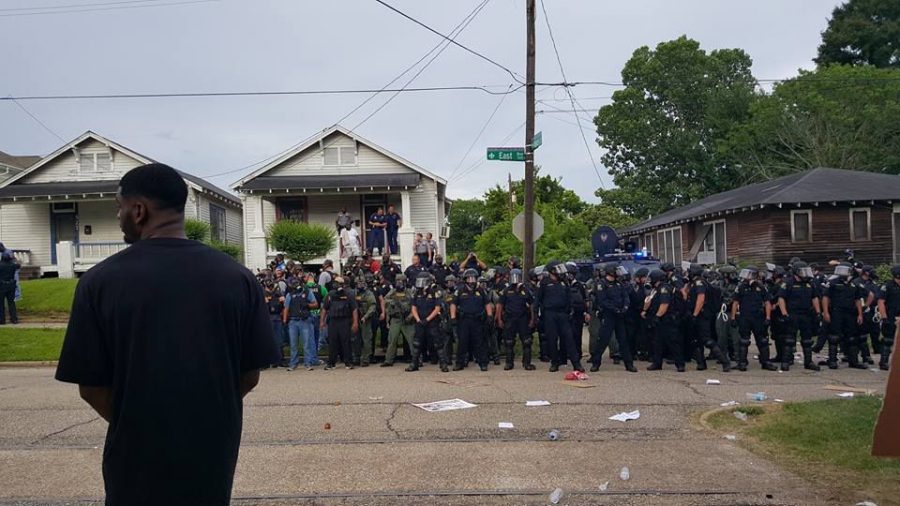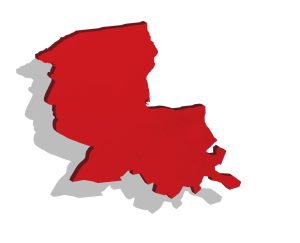Tulane students participate in Baton Rouge protests
In response the the shootings of Philando Castille and Alton Sterling, protests were held in solidarity with Black Lives Matter in Baton Rouge.
August 24, 2016
In July, Tulane students traveled to Baton Rouge to protest the fatal shootings of Alton Sterling in Baton Rouge on July 5 and Philando Castile in a suburb of St. Paul, Minnesota on July 6.
After videos of the two incidents surfaced, the actions of the officers came to the nation’s attention, leading to four days of protests starting on July 8.
Tulane Black Student Union president Will Smith, a Baton Rouge native, helped interested students attend the protests in his hometown by setting up transportation.
“After the shootings, myself and those I was around from the Center for Public Service and the Office of Multicultural Affairs, as well as other student leaders, decided that it would be important to go to the New Orleans protest, as well as get people to the protest in Baton Rouge,” Smith said.
The protests started out peacefully as an organized protest during the evening of July 9 continued without police intervention.
Many protesters continued on towards the highway, citing a desire to pursue additional action. Police arrived on the scene in armored vehicles and wearing riot gear, aiming to block the protesters’ path.
“The behavior of the protesters didn’t change, but at one point they announced over a loudspeaker that this was an unlawful protest and started marching toward us, grabbing people and throwing them to the ground,” Behn said.
Police reportedly told Students Organizing Against Racism Co-convener Zoe Krulak-Palmer, Senior Alex Behn and other protesters that they would be arrested if they remained on the streets. Eventually, a homeowner invited protesters into her yard, though arrests allegedly continued.
In a Times-Picayune report on July 10, State Police Superintendent Mike Edmonson said he believed the group of prostestors on July 10 were a completely different group that those on the evening of July 9.
“It seems to be a completely different group,” Edmonson said. “I think what we saw earlier with the capitol and certainly yesterday, if you saw that they walked down the street. We were able to block streets for them. We escorted them. We’ve been doing that for the past several days… We allowed them to protest and then they go home.”
According to the BRPD July 10 release, these protests following the City Hall march had grown increasingly violent, which led to 102 arrests on the night of July 9.
“In addition to the arrests, three rifles, three shotguns and two pistols were confiscated,” Coppola said. “A Baton Rouge Police Officer had several of his teeth knocked out as a projectile was thrown from the protest.”
Will Smith said he felt personally connected to Sterling’s death.
“Alton Sterling’s death was very jarring to me,” Smith said. “Black and Brown men die by the hands of the police every day, but it wasn’t until it happened in my hometown that I really felt it.”
The death of Sterling was not just personal for those in his community but resonated with many around the nation. Zoe Krulak-Palmer believes that similar incidences are why it is important for the Tulane community to recognize their role in facilitating change.
“It is very easy for white students on Tulane’s campus to not have to engage with that kind of stuff or pay attention to that or reckon what that means for us,” Krulak-Palmer said.
Superintendent Jon Barnwell said improving the partnership between Tulane University Police Department and students has been a continuing goal of his.
“TUPD has worked hard to build a positive relationship with our student body and promote transparency in our delivery of police services,” Barnwell said. “We were one of the first universities in the nation to equip our officers with body cameras.”
With Smith’s involvement in the movement, his personal experiences with the police have led him to a cautiously optimistic view.
“Police brutality and racial profiling are nothing new in this country, and realizing that makes me wary of encounters with the police because I can never know what is going through their head,” Smith said. “On the other hand, I do think that law enforcement would be there for me if I needed them. I guess I just hope for the best.”










Leave a Comment